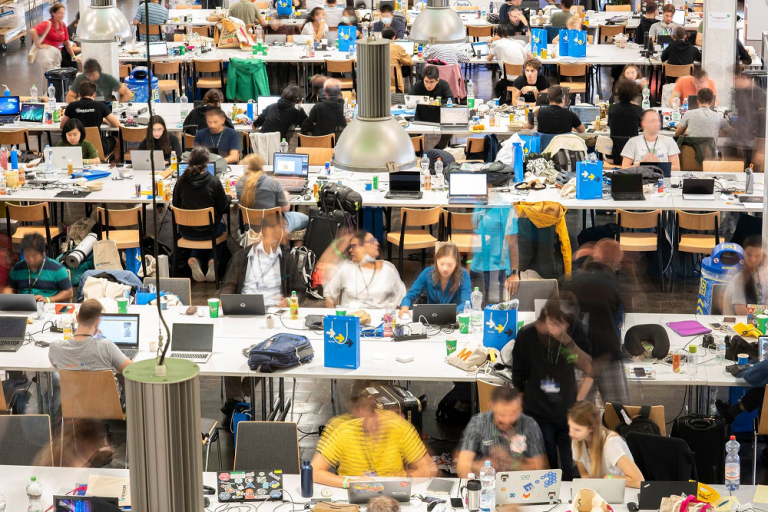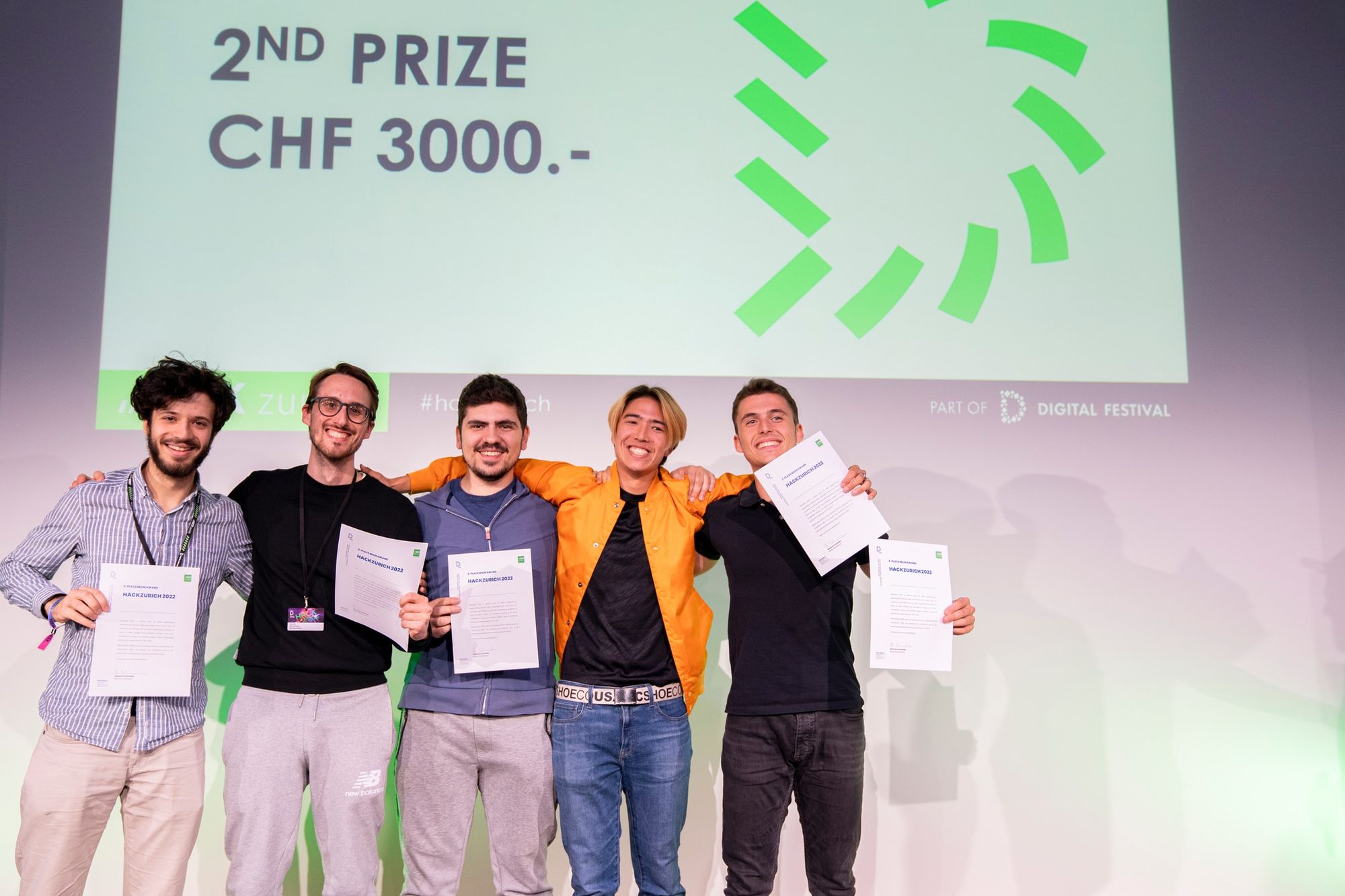With a solution to speed up lengthy airport procedures, TU Delft student Vasco, alumnus Viktor along with their team won second place at the largest European hackathon.
Team Flidless, with TU Delft student Vasco de Graaff second from right and alumnus Viktor Velev third from right, celebrating their prize. (Photos: Zurich Hackathon)
English only
What can be more frustrating than realising you forgot your passport upon arriving at the airport? During a 40 hour hackathon, a team of five, including TU Delft student Vasco de Graaff and alumnus Viktor Velev (both Computer Science Engineering) came up with a solution: Flidless, a paperless process to move through security checks without having to show your passport.
Hackathon
Flidless was created at HackZurich, the largest European hackathon where 1,300 international young tech talents – from students to young professionals – solve problems in teams of two to five people. Eight hundred participants took part online and another 500 attended in person.
The hackathon is split into 19 challenges that the participants can choose from. “During the first day, you check out all these challenges and then you talk to people to put a team together,” explains Vasco.


Participants working on their challenges during the hackathon.
He found his team ‘kind of by accident’. “We were a bit pressed into forming a team since most other participants had already created their teams. But we ended up with a really interesting team from different backgrounds. We had: someone who was working on their own start-up; someone that had finished his PhD in Molecular Biology; Viktor (Velev, Eds.) just started working at Google; Andrey who has a lot of experience in computer vision; and, me. I have a background in building apps and backend development.”
Blockchain
The group ultimately decided to go ahead with one of the blockchain challenges: designing a paperless process for the various checks at airports. “The fun thing is that the assignment is based on an actual – yet to be built – airport in India that will welcome approximately 70 million passengers every year.”
Keeping in mind two important requirements – the application had to be suitable for people who have little to no blockchain knowledge and it should be compatible with any smartphone – the team designed Flidless.
“Flidless effectively eliminates the need for multiple custom and boarding pass checks by confirming a match between the passenger’s personal data and their flight details,” explains Vasco. We do this by using a Zero-Knowledge Proof of Identity. This is a new way of verifying information locally. The maths behind it is very complicated, but essentially it allows you to have complete trust that the information is true and hasn’t been altered. For example in this case, we can verify that the ID is valid and not fake. This proof is then stored on the blockchain – a database that is shared across a network of computers – and a QR code is used to give the location of the proof on the blockchain. It ensures absolute privacy.”
Adrenaline and coffee
One of the things Vasco learned during the hackathon was that creating a product in 40 hours is enough of a tough problem in itself. “But I also learned that the most technologically sound solution doesn’t win. The product that captivates the audience and gets people excited to learn more does. You need to aim to create something that shows the technical feasibility of the project and have a demo of something that actually works. Hackers and programmers don’t want to see a presentation, they want to see a working demo of the project.”
It’s what got Team Flidless the second prize. Although Vasco almost missed the finale. “When the 25 finalists were announced, we weren’t on the list. The organisation had missed us and had added one team twice by mistake. My friend ran across the hall to tell me this right as I was about to get some sleep since I had only had 2.5 hours of rest.”
A bit sleep deprived, and a lot of caffeine mixed with adrenaline is what got him through the final presentation round. Despite the success, he does not recommend this. “I was completely dead for the next two days.”
“Overall, this hackathon experience was one of the most fun weekends I’ve had. I’d recommend anyone interested to check it out. You get to meet so many interesting people from all over the world, learn about cutting edge technology, and push yourself to build something – to solve a real problem that can be immediately implemented.”
Do you have a question or comment about this article?
m.vanderveldt@tudelft.nl


Comments are closed.